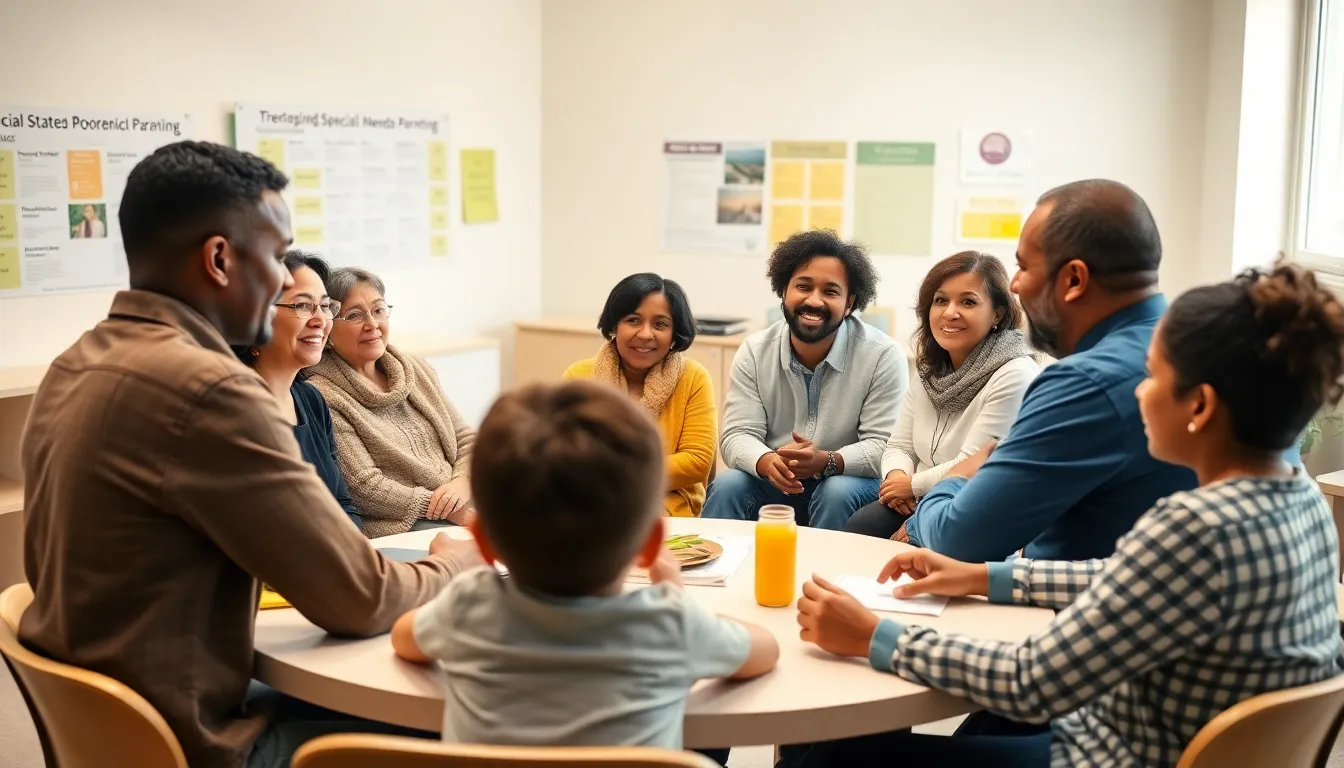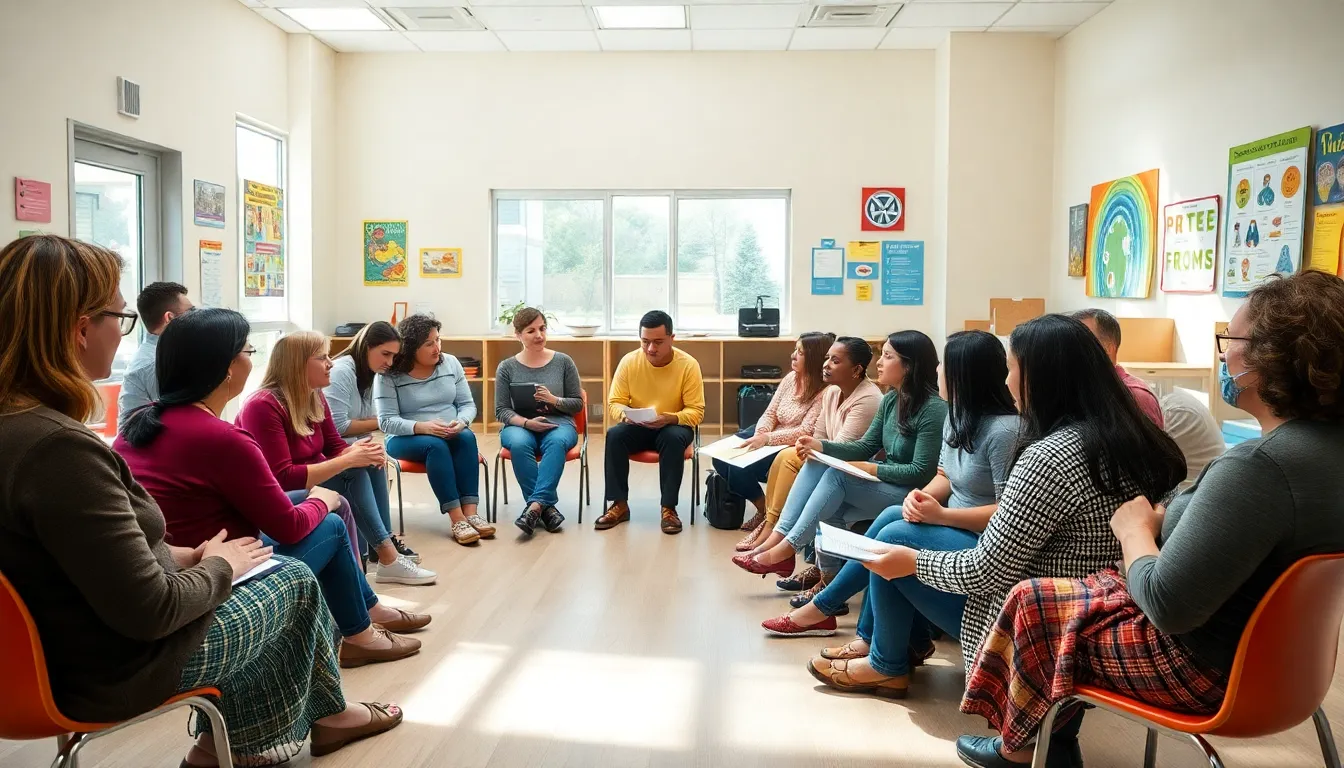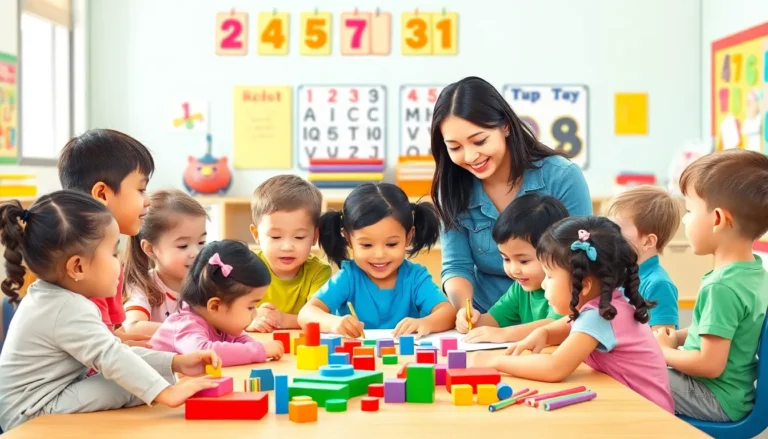Table of Contents
ToggleParenting is a wild ride, but when it comes to special needs, it can feel like a rollercoaster with a few extra loops. Navigating the twists and turns of raising a child with unique challenges requires a special toolkit. Enter special needs parenting classes—your secret weapon for tackling the unexpected with confidence and maybe even a laugh or two.
These classes aren’t just about learning the ropes; they’re about connecting with others who get it. Imagine a room full of parents swapping stories, sharing tips, and laughing at the chaos that is family life. With expert guidance and a supportive community, these classes offer invaluable insights that can turn overwhelming moments into manageable ones. So, why not jump in and discover the strategies that can make parenting feel less like a circus and more like a well-rehearsed dance?
Overview of Special Needs Parenting Classes
Special needs parenting classes equip caregivers with crucial skills and techniques. Courses often cover behavior management, communication strategies, and emotional support. Parents learn to navigate medical, educational, and legal systems relevant to their child’s needs.
Many classes provide a framework for understanding various disabilities, from autism spectrum disorders to physical impairments. Participants gain insights into individual strengths and challenges. These classes foster a collaborative environment where parents can share experiences and resources.
Networking opportunities arise through these sessions. Connecting with other parents creates a sense of community that reduces feelings of isolation. Valuable support systems emerge as friendships develop among participants.
Courses typically involve expert-led discussions and evidence-based strategies. Parents appreciate having access to professionals who understand their unique challenges. Workshops often include role-playing exercises that reinforce learned techniques in real-life scenarios.
Flexibility defines many programs, with options for online or in-person attendance. Families can choose classes that fit their schedules. Cost structures vary, with some organizations offering free services or sliding scale fees.
Finally, ongoing education proves essential. Many parents benefit from attending workshops periodically to refresh their skills and strategies. The continuous learning process ensures they stay updated on the latest best practices in special needs parenting.
Benefits of Special Needs Parenting Classes

Special needs parenting classes provide numerous advantages for caregivers navigating the complexities of raising children with disabilities. Parents gain critical insights and essential skills through these programs.
Improved Understanding of Unique Challenges
Improved understanding occurs as parents learn about the specific challenges their children face. Knowledge about various disabilities and the associated behavioral patterns equips caregivers to respond appropriately. Awareness of the emotional and psychological impacts on both the child and the family fosters empathy and patience. Parents also discover effective resources available within their communities, reducing feelings of helplessness. This education creates a foundation for informed decision-making, leading to better outcomes for their children.
Enhanced Parenting Skills
Enhanced parenting skills result from the strategies learned in these classes. Techniques for behavior management empower caregivers to handle difficult situations with confidence. Communication strategies tailored for children with special needs boost overall interaction quality. Active participation in role-playing scenarios allows parents to practice new approaches in a safe environment. Additionally, collaboration with experienced instructors provides tailored guidance relevant to individual circumstances. Ongoing education reinforces these skills, ensuring caregivers remain equipped to adapt as their child’s needs evolve.
Types of Special Needs Parenting Classes
Special needs parenting classes come in various formats to meet diverse needs. Understanding these options is vital for choosing the right program.
Online vs. In-Person Classes
Online classes offer flexibility and accessibility. Parents can participate from home, benefiting from recorded sessions or live discussions. Interaction occurs through chat rooms or video conferencing. In-person classes facilitate face-to-face networking and real-time engagement. Attending live sessions enables parents to build personal connections with instructors and peers. Each format has unique advantages, and selecting one depends on personal preferences and availability.
Structured vs. Informal Programs
Structured programs provide a comprehensive curriculum covering specific topics. These may include behavior management, communication techniques, and legal rights. Participants benefit from expert-led sessions and clear learning objectives. Informal programs often prioritize peer support and shared experiences. Conversations may flow freely, allowing parents to discuss challenges and successes naturally. Choosing between structured and informal programs hinges on individual learning styles and desired outcomes.
What to Expect from a Special Needs Parenting Class
Special needs parenting classes provide valuable insights and practical skills for caregivers. Participants can expect a supportive environment geared towards understanding and addressing unique challenges.
Course Content and Structure
Courses cover essential topics like behavior management, communication strategies, and emotional support. Sessions often incorporate evidence-based techniques taught by experienced instructors. Parents engage in role-playing scenarios to practice new skills, enhancing their learning experience. Collaborative discussions foster community building among participants. Each class encourages sharing personal experiences to create a rich learning atmosphere.
Duration and Frequency of Classes
Classes typically span 6-12 weeks, meeting weekly or bi-weekly. Each session usually lasts 1.5 to 2 hours, striking a balance between depth of content and participants’ schedules. Some programs offer condensed workshops for those with limited time. Flexibility in attendance options allows parents to choose what fits their lifestyle best. Regular attendance ensures participants absorb information and build connections over time.
Special needs parenting classes serve as a vital support system for caregivers navigating the complexities of raising a child with unique challenges. These classes not only equip parents with essential skills but also foster a sense of community that can alleviate feelings of isolation. By engaging with knowledgeable instructors and fellow parents, participants can share experiences and strategies that enhance their parenting journey.
The ongoing education provided through these classes ensures that caregivers stay informed about best practices and resources available to them. With a variety of formats and structures to choose from, parents can find a program that suits their needs and learning styles. Embracing this opportunity can lead to more confident parenting and a deeper understanding of their child’s needs.





